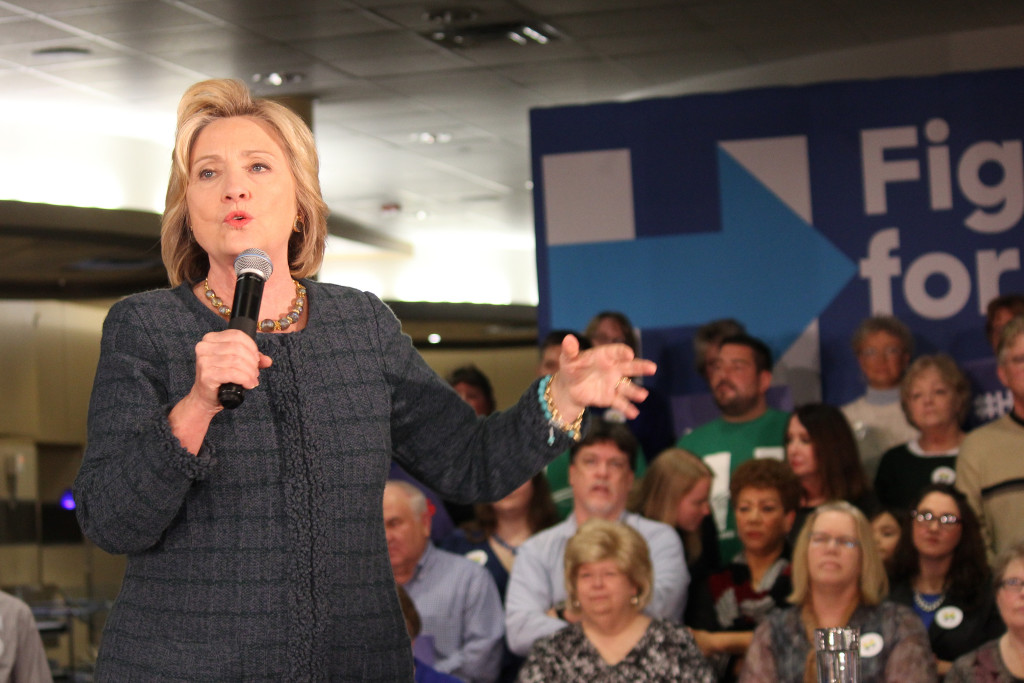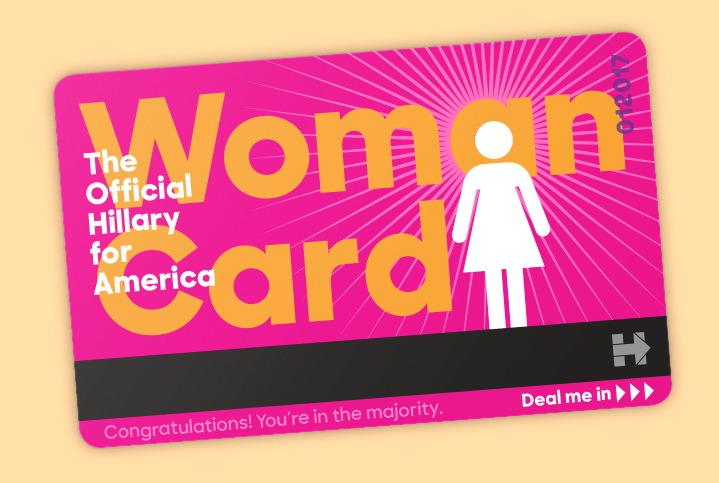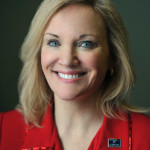
Hillary Clinton speaks at a January 2016 campaign stop at Iowa Western Community College in Council Bluffs, Iowa. Photo Credit: Matt A.J./Flickr
Nichola D. Gutgold | Professor of Communication Arts and Sciences and Schreyer Honors College Associate Dean for Academics
As the contentious primary contests draw to a close, Hillary Clinton and Donald Trump are the likely Democratic and Republican nominees for president, and, as such, they have begun to shift to a general election rhetoric. Trump has accentuated the gender of Clinton, asserting that it is an unfair advantage for her to play the “woman card.”
Women have figured prominently in the 2016 campaign, and as President Barack Obama optimistically noted in his commencement speech at Howard University, “… to deny how far we’ve come would do a disservice to the cause of justice.”
A review of the many ways to play the “woman card” — if that’s what you want to call it — reveals that no longer are women relegated to “staying home and baking cookies” (though, that is a nice option, if one chooses). The women who are part of this election are proof that unlike the small sphere of influence not that long ago relegated to women in the political world, the role of women has expanded and the real possibility that we may elect a woman president is only one part of that expansion.
Fox News anchor Megyn Kelly has sparred publicly with Donald Trump after challenging his characterizations of women as “fat pigs, slobs — and disgusting animals” in the first presidential debate. Barbara Bush, former first lady and mother of former presidential candidate Jeb Bush, publicly wondered how women could vote for Trump and encouraged her son to interrupt more.
Melania Trump, business woman, former model and wife of Donald Trump, has encouraged her husband to act more “presidential” while his daughter, Ivanka Trump, business woman and former model who just gave birth to her third child, is one of the more articulate spokespeople for her father’s campaign — especially when juxtaposed with Sarah Palin, former governor and vice presidential candidate who commented that Paul Ryan may well be “cantored ” — referring to the ousting of former Rep. Eric Cantor in a 2015 Virginia primary — for not supporting Donald Trump.

The Hillary Clinton campaign started issuing actual “woman cards” after Donald Trump said Clinton owed her success to playing the “woman card.”
Image credit: screenshot from hillaryclinton.com
Chelsea Clinton is a surrogate on the campaign trail for her mother while feminist icon Gloria Steinem and former Secretary of State Madeleine Albright have had their moments in the spotlight during this campaign. North Carolina Gov. Nikki Haley endorsed Marco Rubio’s failed presidential effort and is considered as someone to watch on the national Republican stage, and actress America Ferrera publicly insists that “I am a female, millennial voter … and I’m not only voting for Hillary, but I really like Hillary.”
And, of course, there is Hillary Clinton herself — the front runner in the Democratic party and the Rorschach test of what it means to be a woman in America. She is a former “Goldwater Girl,” first lady, senator, secretary of state, mother and grandmother.
So what do the voters who are women really think about a woman president? Most of course love the idea, but they are not voting for Hillary because she is a woman. They are, however, donating to her campaign. The New York Times noted that close to half of Clinton’s “bundlers” — the volunteer fundraisers who solicit checks from friends and business associates — are women, compared with about a third of President Obama’s 2012 bundlers.
As Gail Collins noted in her five decades-long review of the women’s movement, “When Everything Changed,” no woman would want to turn back the clock to the “Mad Men” or “Apollo 13” days when a woman needed to be thin, perfectly made up with floors that gleamed to be worth anything.
So, yes, the woman card is playing out in lots of different ways. It is definitely not your mother’s woman card and positive proof of progress.

